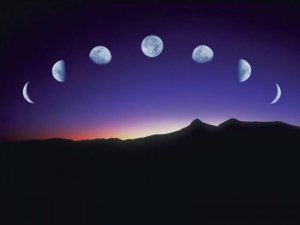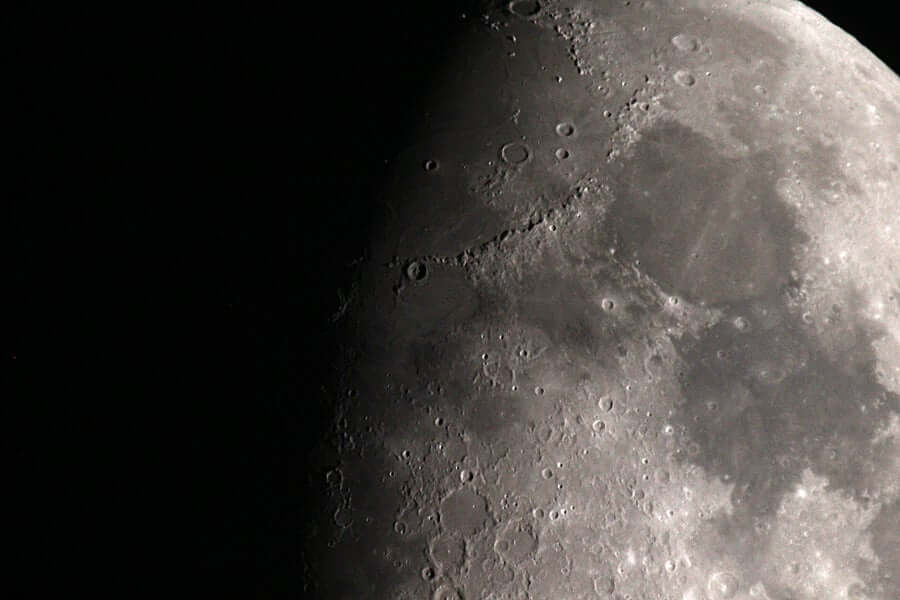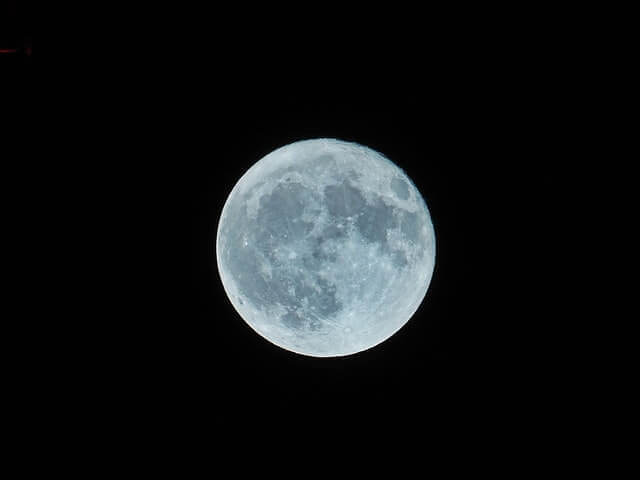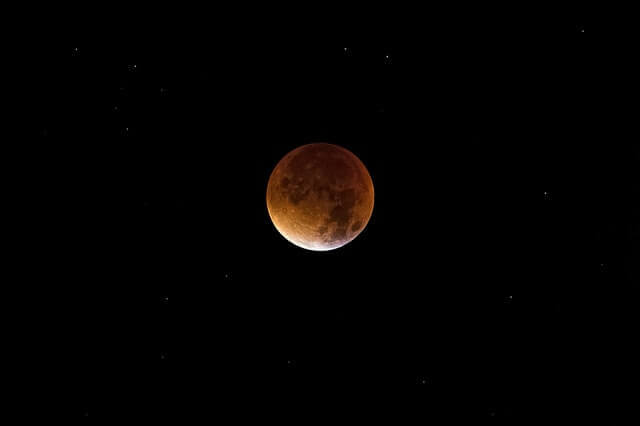What Is the Effect of the Moon on Human Beings?


Written and verified by the philosopher Isbelia Esther Farías López
The natural satellite of the planet earth provides us with an incredible view. In addition, there are thousands of stories around it. No doubt, it attracts, inspires and makes people’s imagination fly. But does the moon have any effect on human beings?
The moon affects the tide, but it’s also said that it has a certain influence on our behavior. Therefore, our mood and our decisions can change the same way that the phases of the moon change.
It’s also believed that the moon affects our sleep, especially when it’s a full moon. During this phase, people tend to take longer to fall asleep, or they sleep poorly.
How does the moon affect us – the most popular beliefs

For thousands of years, there has been the belief that the moon has a certain influence on human behavior. Many people believe its energy is so powerful it can alter our lives.
Furthermore, we’ve known since ancient times that the moon affects the tides but some also believe it impacts crops, animal behavior, and even human emotions.
To date, there’s still no definitive proof to supports these beliefs. This is why science considers them popular beliefs and not facts.
However, this hasn’t stopped people from continuing to share their beliefs and from carrying out activities according to the lunar phases.
You might like reading this article, too: Is it True That the Moon Can Affect Your Life?
Lunar phases and their effects
According to popular belief, depending on the phase of the moon, people may have a greater tendency to behave in one way or another.
New moon
This phase lasts for about three days. Some mystics say it’s the best phase for detoxifying the body. Many also consider it a time to start new things. Because of this, it’s ideal for starting new routines, for changing the habits that you don’t like or that don’t benefit you. It’s also an ideal time for tranquility and introspection.
First quarter
During this phase, the moon is only half visible. This phase is said to be the one of prosperity, health and vitality. If you want to start a new project, a business or even just start to do workout, this is the best time.
Some also believe that the first quarter moon gives human beings positive energy and that it influences our actions in the same way.
It’s also common to hear that, during this phase, it’s good to trim plants and cut your hair so they’ll grow faster, stronger and shinier.
Like this article? We think you may also like to read: How to Pick your Honeymoon Destination
Full Moon

This is the phase in which the moon is completely round and radiating with solar light. Some myths say this causes behavioral changes in human beings. These can range from sudden mood swings, to even violent behavior, and being blue.
Full moons are associated with euphoria and excess, but also with plenitude and achievement. It is said by mystics that, in this phase, everyone turns into a “lunatic” because the moon’s energy is greater than normal.
Waning Gibbous
The waning gibbous represents the “death” of the celestial body. It’s the last phase before the cycle starts over again. It’s said that this is the time for decision-making and for maturing. Also, some believe that problems and negative mental states will decrease during this lunar phase.
How does the moon affect us? Four common myths
The moon frightens, delights, and inspires. For this reason, all kinds of myths have been told throughout the history of mankind about its influence on people. Some of the most common are:
1. The moon favors fertility
Some say that it’s more likely to get pregnant during a full moon. Some believe it’s especially true if you sleep under the light of the full moon. Also, there is the belief that the moon and eclipses, in general, favor the fertility of women.
2. There’s increased passion during a full moon
This phenomenon is known for increasing passion and sensuality among partners. While this natural satellite has always been a romantic element for human beings. In fact, it’s a common motif in iconic representations (paintings, photos) related to love.
3. It’s best to get married during the first quarter
As the belief goes, marrying during the first quarter favors relationships. In other words, it’ll make the marriage prosperous and lasting. This is due to the belief that everything that occurs during this phase “of growth” has a positive influence on the other areas of our lives.
4. The blood moon

A “blood” moon is that with a reddish tint. As the myth goes, in these moments, the energy that it gives off is dangerous for human beings since it brings out the grudges and any hate that you may have.
In conclusion
In spite of popular belief, there’s no scientific evidence that can confirm that the lunar phases affect us. However, there’s no doubt that this beautiful natural satellite has managed to inspire us to a great extent for thousands of years.
All cited sources were thoroughly reviewed by our team to ensure their quality, reliability, currency, and validity. The bibliography of this article was considered reliable and of academic or scientific accuracy.
- Andrade, R. , Rojas, J., Espinoza, M. & Viamonte, K. (2017). Influencia lunar en cultivos, animales y ser humano. Revista Uniandes Episteme, 4(1), 37-47. Disponible en: https://dialnet.unirioja.es/servlet/articulo?codigo=6756394
- Bjursten, H., Oudin Åström, D., Nozohoor, S., et al. (2022). Once after a full moon: acute type A aortic dissection and lunar phases. Interactive Cardiovascular and Thoracic Surgery, 34(1), 105–110. Disponible en: https://doi.org/10.1093/icvts/ivab220
- Cajochen, C., Altanay-Ekici, S., Münch, M., et al. (2013). Evidence that the lunar cycle influences human sleep. Current Biology: CB, 23(15), 1485–1488. Disponible en: https://doi.org/10.1016/j.cub.2013.06.029
- Chakraborty, U. & Ghosh, T. (2013). A study on the physical fitness index, heart rate and blood pressure in different phases of lunar month on male human subjects. International Journal of Biometeorology, 57(5), 769–774. Disponible en: https://doi.org/10.1007/s00484-012-0605-z
- Della, M., Atzori, G. & Dijk, D. (2015). Effects of lunar phase on sleep in men and women in Surrey. Journal of Sleep Research, 24(6), 687–694. https://doi.org/10.1111/jsr.12312
- Foster, R. G. & Roenneberg, T. (2008). Human responses to the geophysical daily, annual and lunar cycles. Current Biology: CB, 18(17), 784–794. Disponible en: https://doi.org/10.1016/j.cub.2008.07.003
- Helfrich-Förster, C., Monecke, S., Spiousas, I., et al. (2021). Women temporarily synchronize their menstrual cycles with the luminance and gravimetric cycles of the Moon. Science Advances, 7(5), 1-14. Disponible en: https://doi.org/10.1126/sciadv.abe1358
- McLay, R. N., Daylo, A. A. & Hammer, P. S. (2006). No effect of lunar cycle on psychiatric admissions or emergency evaluations. Military Medicine, 171(12), 1239–1242. Disponible en: https://doi.org/10.7205/milmed.171.12.1239
- Meyer-Rochow, V. B., Hakko, T., Hakko, H., et al. (2021). Synodic lunar phases and suicide: based on 2605 suicides over 23 years, a full moon peak is apparent in premenopausal women from northern Finland. Molecular Psychiatry, 26(9), 5071–5078. Disponible en: https://doi.org/10.1038/s41380-020-0768-7
- Turányi, C. Z., Rónai, K. Z., Zoller, R., et al. (2014). Association between lunar phase and sleep characteristics. Sleep Medicine, 15(11), 1411–1416. https://doi.org/10.1016/j.sleep.2014.06.020
- Wehr, T. A. (2018). Bipolar mood cycles and lunar tidal cycles. Molecular Psychiatry, 23(4), 923–931. https://doi.org/10.1038/mp.2016.263
- Wheeler, D. M. V. (2019). El mito de las fases lunares y la menstruación. Clue. Consultado el 7 de febreor de 2023. Disponible en: https://helloclue.com/es/articulos/ciclo-a-z/el-mito-de-las-fases-lunares-y-la-menstruacion
- Yousfi, N., Arbi Mejri, M., Kasmi, S., et al. (2020). Does the moon cycle affect the physical endurance, balance, reaction-time, mood state and well-being in trained athletes? The Journal of Sports Medicine and Physical Fitness, 60(1), 125–131. https://doi.org/10.23736/S0022-4707.19.09940-7
This text is provided for informational purposes only and does not replace consultation with a professional. If in doubt, consult your specialist.








